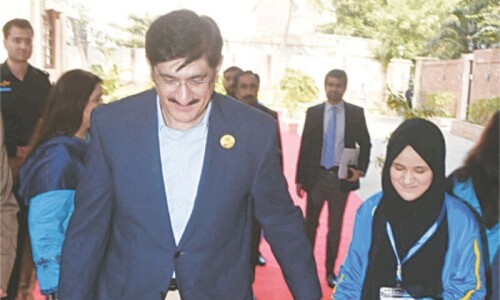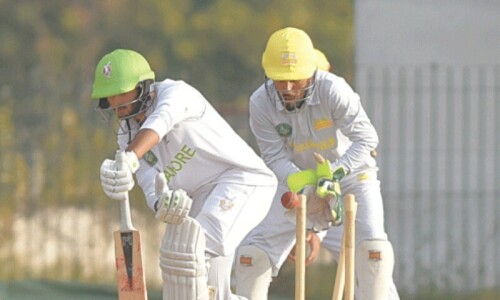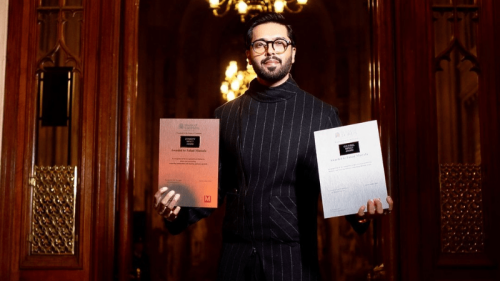KARACHI: When you celebrate the 70 years of Pakistan, music automatically merits for discussion since it has made the country proud both at home and abroad. However, renowned theatre and TV actor Khalid Ahmed and legendary ghazal singer Tina Sani had a different perspective that they shared with the audience at The Second Floor on Saturday night. While Khalid Ahmed shared his experience as a vocal trainer for actors and association with arts, Tina told the packed audience about her 40 years in music industry and her association with the best in the business.
Mr Ahmed was the first to speak and he lamented that the current generation uses music as a shortcut to fame; instead of observing ustaads and learning from them, many students at the National Academy of Performing Arts first get makeovers to look like musicians and later on quit studies after understanding the basics. He also accused the patrons of not supporting musicians in Pakistan, which resulted in the decline of classical music in the country; something that still gets patronage from the government and the well-wishers in India. In his opinion, multinational brands should lend their support to the families of classical musicians because (a) even after 70 years, they are still not considered equal and (b) because the ustaads don’t want their children to pursue music for monetary reasons. For them, their head waiter son gets more respect than they ever did and that is a shameful situation for us as a nation.
Tina Sani, on the other hand, had a different perspective; the renowned singer disclosed to the audience that when she was growing up, she didn’t know who Begum Akhtar was and that was because she belonged to her father’s generation, not hers. However, with the passage of time, she managed to understand the basics of music and after becoming a ghazal singer learnt a lot from Mehdi Hasan and Tufail Niazi who were masters of the trade. She told the audience that most musicians were affected by Partition, as they had to start over in the new country. She cited the example of Tufail Niazi, who was a star in the Indian Punjab before Partition, so much, so that people first used to get dates from him and then set the date for their functions, most notably weddings. In the Sikh dominated area, people used to tease one another with Oh To Kera Tufail Ko Le Aana when people used to delay dates. When he migrated to Pakistan with his family, he opened a dairy shop in Multan because not many knew him in this part of Punjab. One police officer recognised him and helped him out with the instruments that migrating musicians had left behind, reviving his career in Pakistan. Others, however, weren’t that successful, according to Tina, and when PTV allotted 4pm slot to classical music, it sort of pushed them further down the road.
Tina Sani also told the audience that voice training has nothing to do with singing; she also rejected the notion of practising for more than 12 hours because, in the West, artists develop techniques to better their vocals, something we don’t believe in.
She compared American tennis stars Arthur Ashe and Serena Williams, saying that a lot has changed from the time when Arthur Ashe used to play just because now, Serena Williams knows how to play smartly, with better gadgets, improved techniques in less time.
Tina also termed folk music Pakistan’s very own since all musicians and singers who pursue folk are treated stars in their villages and are looked after by the rich. She also advised the youngsters willing to take music as a career to follow the master, not the leader since the leader will give them a refresher course, a master will send them out to venture and learn.
After a brief question and answer session, the event concluded with Tina Sani singing Bol Kay Lab Azad Hain Tere that captivated the audience.
Published in Dawn, October 9th, 2017















































Dear visitor, the comments section is undergoing an overhaul and will return soon.